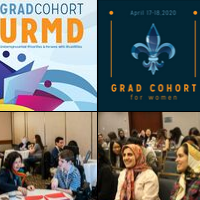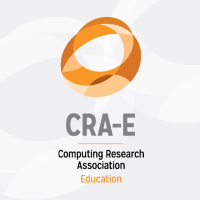Expanding the Pipeline: Supporting Computer Science Growth Through Community
By Jake Baskin, Executive Director of CSTA
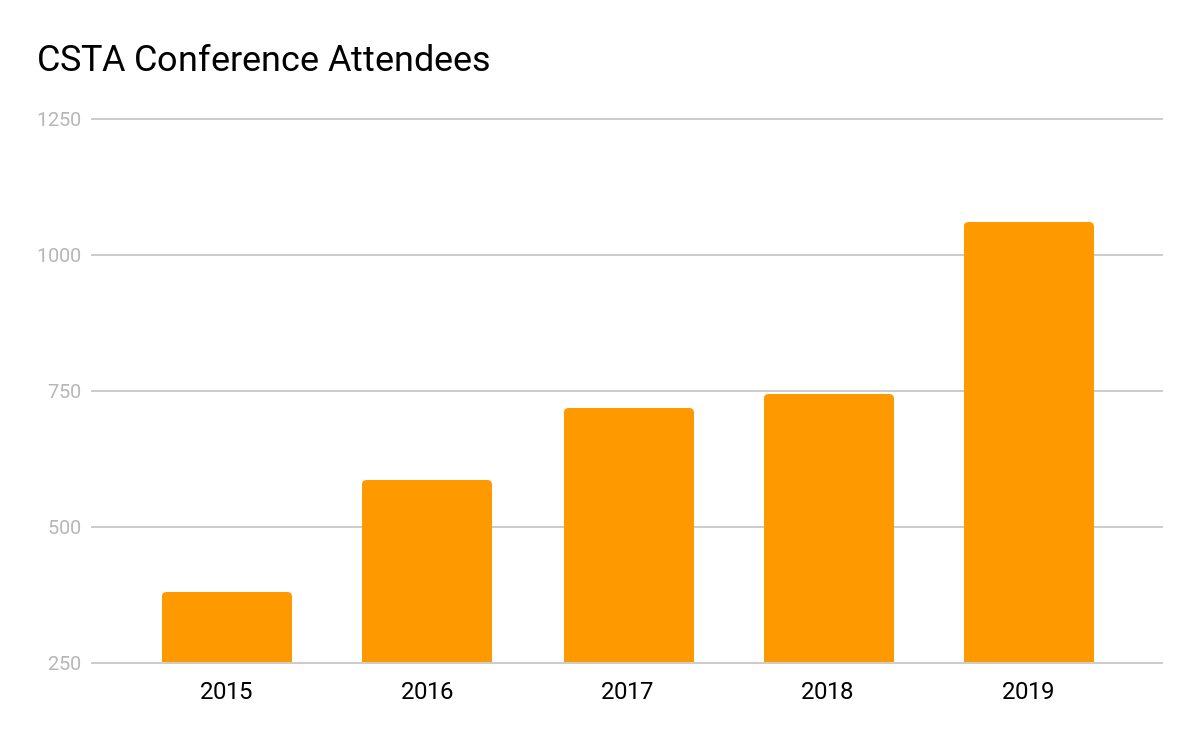
This chart showcases the growth of CSTA’s Annual Conference over the past five years.
Teaching is hard — and teaching computer science can be even harder. With the growing need for computer science teachers in the classroom and an increased focus on access to computer science education, the role of the Computer Science Teachers Association (CSTA) is more important than ever. With the mission of supporting K–12 teachers in the field, CSTA provides educators with the professional development events and community they need to improve their craft.
This past July, we hosted our largest CSTA Annual Conference to date — connecting 1,014 onsite attendees with the latest topics in CS education. These attendees had access to four general sessions, 20 workshops, seven Birds of a Feather discussions and 51 sessions full of peer-reviewed content.
With significant growth in the past five years and a 40 percent increase in attendees over 2018, the conference was the perfect venue to announce the initiative we’re supporting over the next year — and beyond.
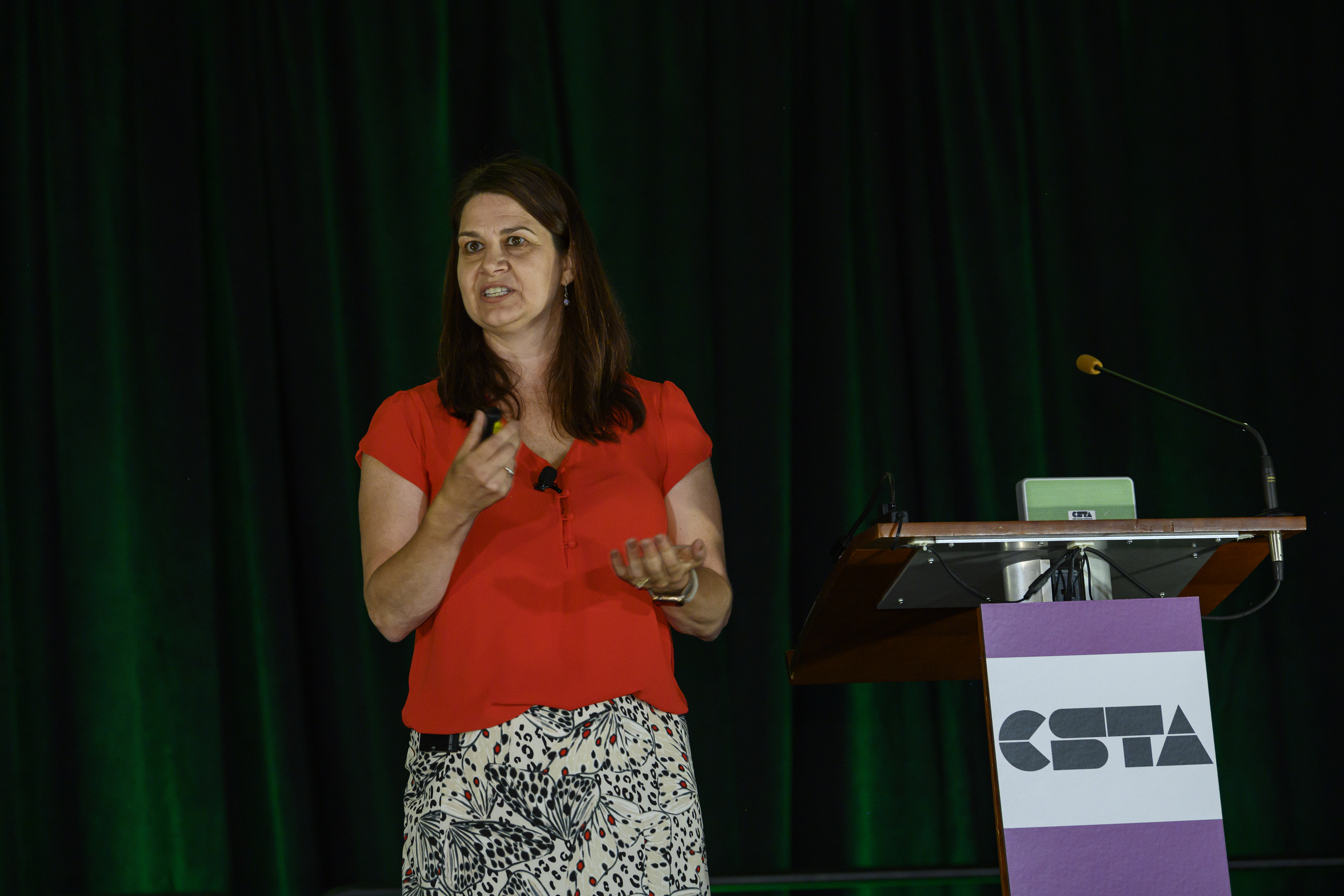
Dr. Joanna Goode during her keynote on equity at CSTA 2019.
Commitment to Equitable Teaching Practices
During her keynote address “Equity, Inclusion, and Teaching CS to All,” CSTA Equity Chair Dr. Joanna Goode announced the launch of our organization’s first Equity Fellowship. The year-long program, made possible in partnership with Microsoft and Pluralsight One, has been designed to develop leadership in equitable teaching practices and advocacy.
The initial cohort of 10 fellows will:
- Share their expertise with CSTA members across the globe;
- Support the design of professional learning experiences for CSTA members; collaboratively design and implement a project to promote equity in CS education; and
- Showcase their projects at CSTA 2020.
As of the writing of this piece, CSTA’s review committee is in the process of selecting fellows from the 112 applications received. We encourage you to visit CSTA’s website in late September to learn about the 10 selected fellows and follow along with the amazing projects they will be creating.
Dr. Goode’s keynote address wasn’t the only opportunity for educators to focus on learning about equitable practices. Other session opportunities included “Advancing Equity and Inclusion in Computer Science Education” — presented by Microsoft, “Philosophy to Pedagogy: Practical ways to create an inclusive classroom” and “Making Computer Science Classes Culturally Relevant for All Students.”
“CSTA should be recognized for its commitment to equity…Thank you CSTA for making this important issue such as focal point of your conference.”
Excellence in Computer Science
As a former high school computer science teacher, I was thrilled to announce that CSTA is elevating the Computer Science Honor Society (CSHS) to the national level. This program offers high school teachers from across the United States the opportunity to cultivate local societies that support thriving environments for success in computing courses. This program encourages secondary students’ enthusiasm for computer science, honors academic excellence and promotes service through three core values:
- Equity: A realization that any student has the potential to enroll, to grow, and to excel in computing.
- Service: Empowering members to become ambassadors of the computer science discipline, helping underscore its importance as a mainstay in the school and the community.
- Excellence: A commitment to promoting outstanding scholarship in computer science coursework.
Since its introduction at CSTA 2019, 30 applications have come through to form new societies for the 2019–20 school year. These new societies will join the 45 existing ones. If your school is interested in starting a CSHS, visit csteachers.org/CSHS to learn about the criteria.
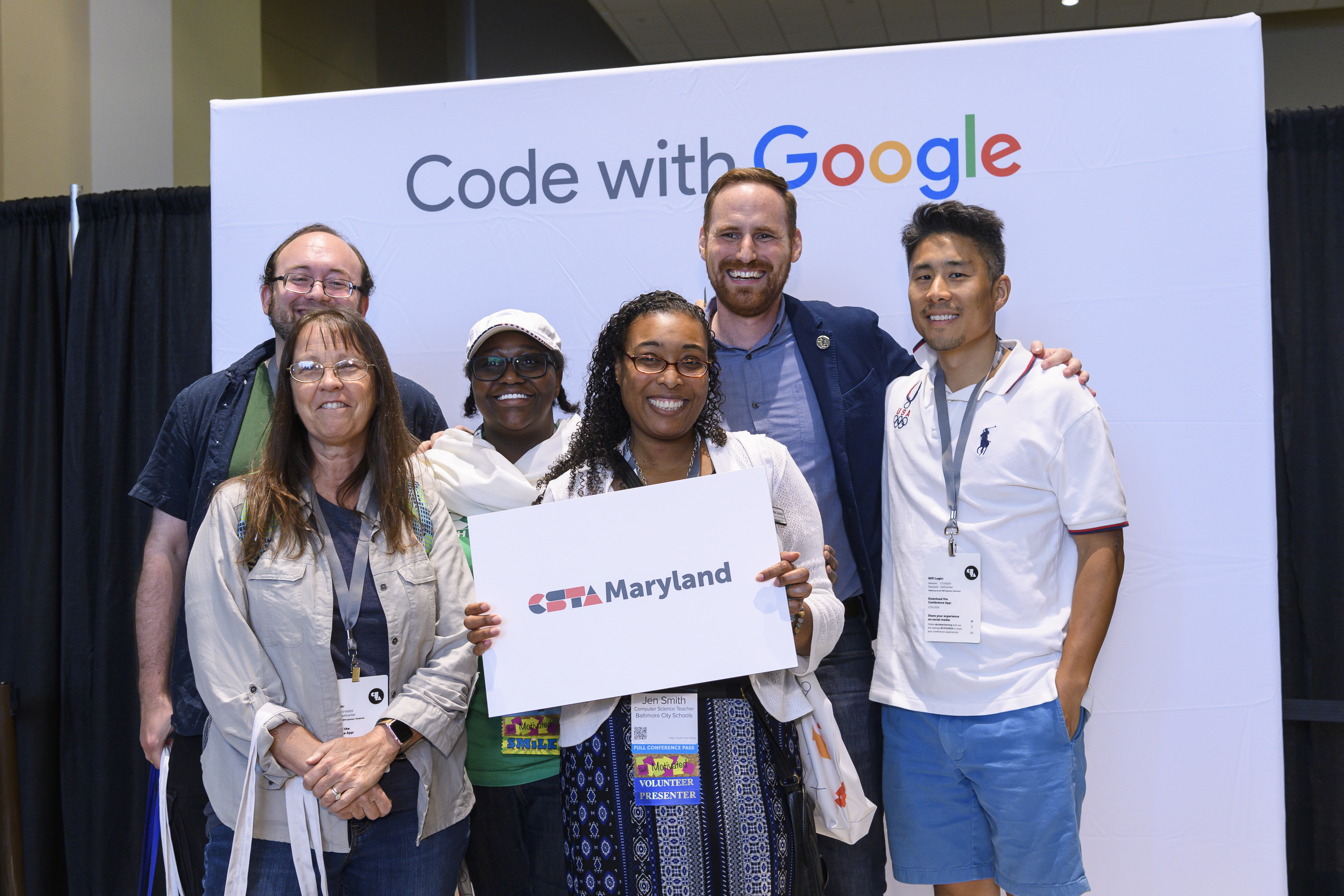
Chapter leaders pose with CSTA Executive Director Jake Baskin at the Chapter Leaders Reception — sponsored by Google.
Leadership Development for Chapter Leaders
CSTA’s chapters are the heartbeat of the organization — the place where teachers can go to ask questions, find solutions and offer advice. My local CSTA chapter was the first place I found a community of practice and support. That’s why I’ve focused CSTA on growing and sustaining our local chapters to make sure that every new computer science teacher has an even better experience than I did when walking into their first chapter meeting.
A great chapter experience comes from the dedication of chapter leadership. Thanks to the support of our strategic partner Google, we were proud to host 79 of CSTA’s chapter leaders at the Chapter Leadership Summit, which was held during CSTA 2019. During this event, Chapter Leaders were provided with programming to help strengthen their chapters in the areas of:
- Finances and Grants
- Website Management
- Events
- Building Community
- Developing a Marketing Plan
- Fundraising
- Membership
- Grassroots Advocacy
- Computer Science Professional Development Weeks
“As a new member and leader, I have learned something in every meetup. I liked meeting and collaborating with so many other chapters. I was also able to join the discussions regarding a New England consortium of chapters and the October PD that we will collaborate on.”
For the first time ever, leadership was provided with the guidance to both assess and set goals for their chapters. We’re so excited to see how our chapters continue to grow over the next year!
CSTA Chapter Leaders gained special access to a reception, sponsored by Google, where they were the first to hear about Google’s $1 million grant to CSTA and the launch of their new brand, Code with Google. At the event, they learned about new Google technologies, got to check out a Waymo car, and were able to network and share best chapter practices with each other.
As we reflect on the success of CSTA 2019 and move forward with these new programmatic focuses, we’re already planning for the 20th Annual CSTA Conference! CSTA 2020 will be our longest conference to date — we’re adding a day of programming to provide even more value to our attendees. Set for July 11–15 in Arlington, Virginia, CSTA 2020 registration is available for CSTA+ members. To learn more about CSTA and the Annual Conference, visit our website.
Words from CSTA 2019 Attendees
“I’m energized to get the computer science program started at my high school, but more importantly I am excited to try to support equity and student voice in my developing program.”“I walked away feeling like a part of a greater community. I left with a sense of belonging and support. I have people to reach out to, to collaborate with, and to share successes and challenges and triumphs with.”
“So many times as a CS educator, it’s easy to feel alone. You may be the only one in the building or even the county. I always leave CSTA feeling part of something bigger than myself.”
About the Author
 Jake Baskin is the Executive Director of CSTA, the world’s leading association for K-12 computer science teachers. He is a former high school computer science teacher, department chair, and professional development provider with the Chicago Public Schools, where he focused on increasing access to computing for underrepresented groups and more than doubled female enrollment in introductory computer science classes. Prior to CSTA, Baskin was Director of State Government Affairs for Code.org, where he worked with educators and policymakers to advocate for policies that expand access to high-quality computer science education with state departments of education and governor’s offices across the country.
Jake Baskin is the Executive Director of CSTA, the world’s leading association for K-12 computer science teachers. He is a former high school computer science teacher, department chair, and professional development provider with the Chicago Public Schools, where he focused on increasing access to computing for underrepresented groups and more than doubled female enrollment in introductory computer science classes. Prior to CSTA, Baskin was Director of State Government Affairs for Code.org, where he worked with educators and policymakers to advocate for policies that expand access to high-quality computer science education with state departments of education and governor’s offices across the country.


